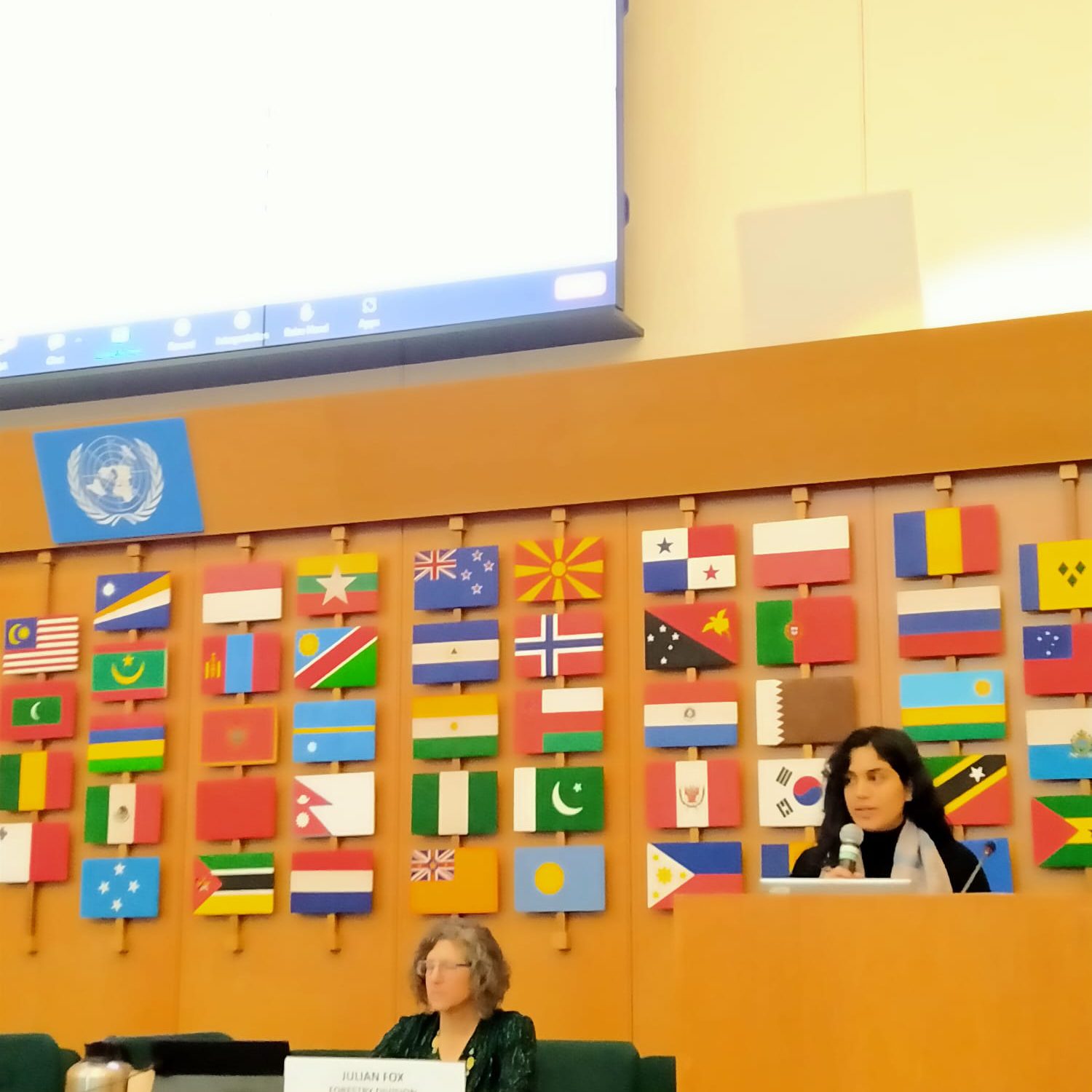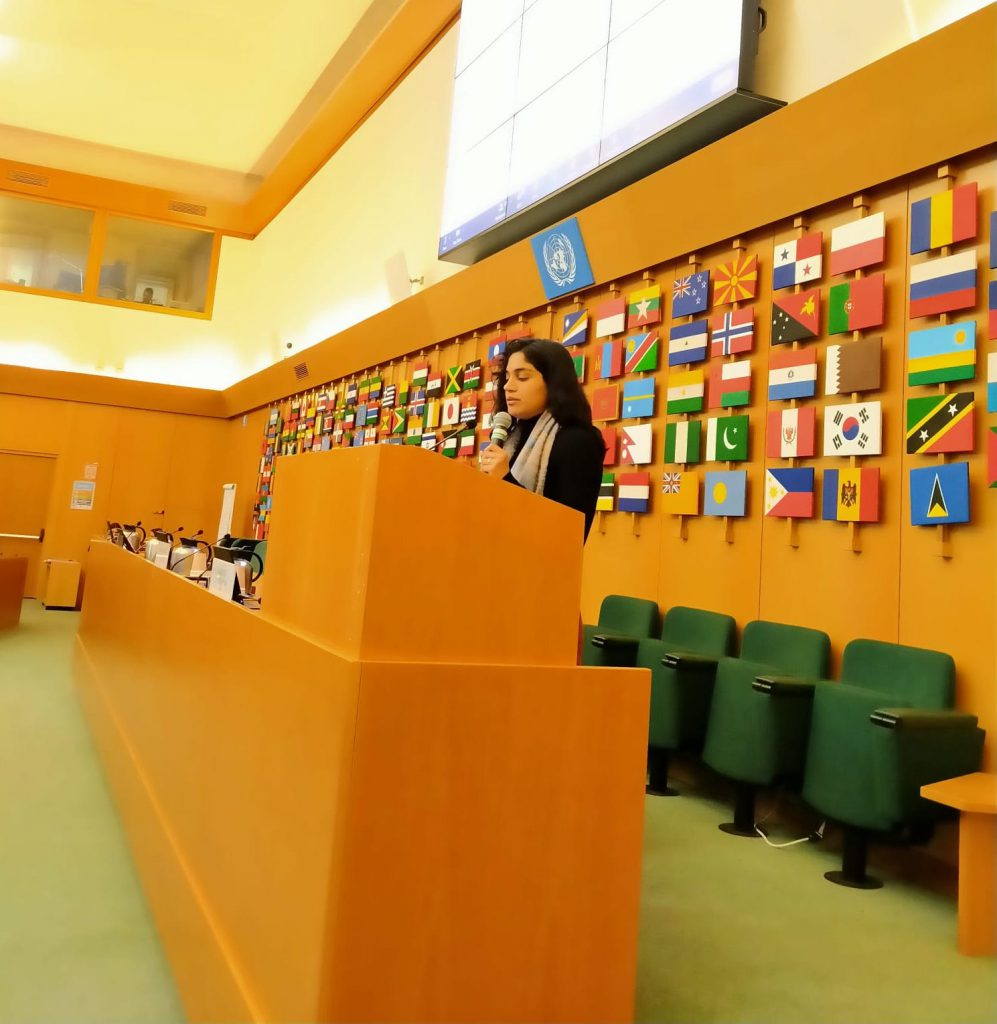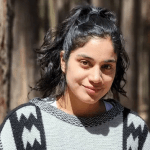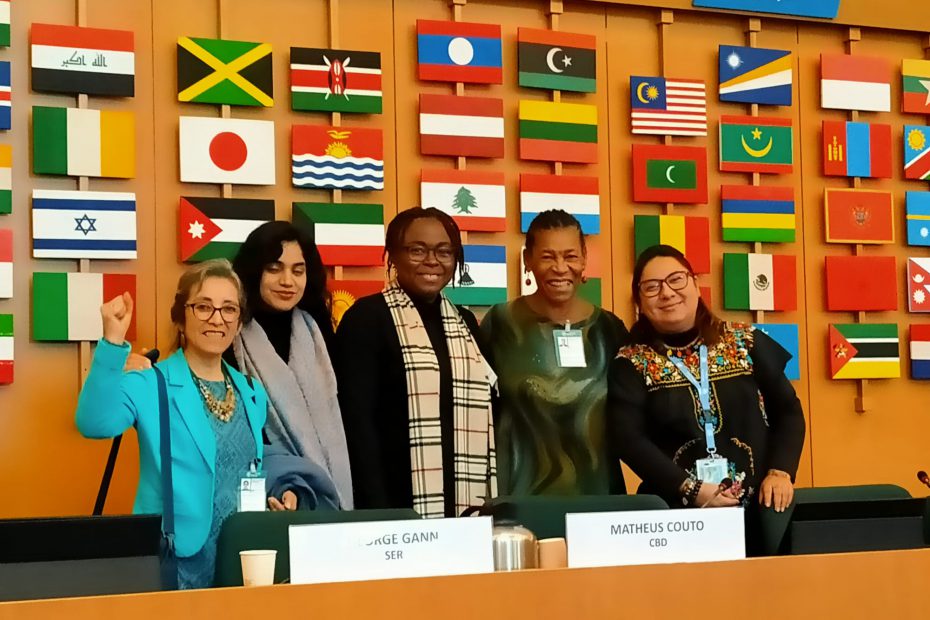TEXT BY Alejandra Duarte, Policy Intern at Women4Biodiversity
Target 2: 30% of degraded areas are under effective restoration
Kunming-Montreal Global Biodiversity Framework
Ensure that by 2030 at least 30 per cent of areas of degraded terrestrial, inland water, and marine and coastal ecosystems are under effective restoration, in order to enhance biodiversity and ecosystem functions and services, ecological integrity and connectivity.

The workshop on “Developing a Roadmap for the Kunming-Montreal Global Biodiversity Framework Target 2” was held at the Food and Agriculture Organization of the United Nations (FAO) headquarters in Rome, Italy, from 22nd to 24th November 2023. This workshop brought together over 100 representatives from diverse backgrounds, including governments, NGOs, Indigenous Peoples and local communities (IPLCs), scientific institutions, international cooperation, and women, to align the collective efforts made in the United Nations Decade on Ecosystem Restoration, the Kunming- Montreal Global Biodiversity Framework and the 2023 Agenda and its Sustainable Development Goals, to accelerate the implementation of the ecosystem restoration commitments and their transparent monitoring and reporting.
The workshop began with discussions on aligning the UN Decade on Ecosystem Restoration and the Kunming-Montreal Global Biodiversity Framework with other relevant frameworks. Presentations by Mr Frederic Castell (FAO), Ms Jamal Annagylyjova (CBD) and Ms Rivera (Ramsar) provided valuable insights into the objectives and goals of these frameworks and highlighted the importance of collaboration and synergy across initiatives. The workshop then delved into unpacking Target 2, which calls for the restoration of at least 30% of degraded terrestrial, inland water, and marine and coastal ecosystems by 2030. All the plenary sessions were then discussed in breakout sessions which facilitated interactive discussions on the challenges and opportunities in the implementation of Target 2.
During the three-day workshop, we addressed relevant topics, such as transparent monitoring and the presentation of different restoration platforms made by countries and international organizations (Mexico’s National Restoration Information System – SNIRA, presented by Ms Wolke Tobon; Framework for Ecosystem Restoration Monitoring – FERM, of FAO, presented by Ms Yelena Finegold and RESTOR, by Ms Stephanie Feeny). Restoration financing, addressed by Conservation International, FAO, IUCN and Climate Focus, during this presentation the use of biodiversity offsets was mentioned, which is an ethical controversies conservation tool that aims to counterbalance losses of biodiversity in one place by generating the equivalent biodiversity benefits elsewhere1. Another relevant topic was stakeholder inclusion and respect for right holders, where local restoration experiences that involved the IPLC were presented, although there was not an initiative specifically made by women (take a look for our specific women´s lead restoration initiatives), they introduced the “Monitoring Gender Equality and Social Inclusion in Forest and Landscape Restoration Programs” tool, that includes gender indicators related to ecosystem restoration. In the last breakout session, we saw how FERM, a platform that aims to support countries in reporting areas under restoration for the Kunming-Montreal Global Biodiversity Framework Target 2, is going to be used by Parties to report their initiatives. Although the gender and social indicators were not too many, this can be edited during the reporting. As the representative of Women in this workshop, I raised awareness about the importance of gender-responsive restoration practices, monitoring, and development of gender-differentiated data and policies.

In conclusion, Target 2 presents an ambitious yet achievable goal with the collaborative efforts across the UN Decade on Ecosystem Restoration, the Kunming-Montreal Global Biodiversity Framework, and the 2030 Agenda and its SDG. Local initiatives with a gender approach that includes the participation of all stakeholders and capacity building are crucial elements for successful implementation, also transparent and robust monitoring systems are essential for tracking progress towards Target 2 and ensuring accountability. The Kunming-Montreal Global Biodiversity Framework Target 2 represents a significant challenge and opportunity to restore our planet’s degraded ecosystems and halt the loss of biodiversity. The roadmap workshop provided the alignment needed for all the collective efforts made so far by different stakeholders, identify challenges, and possible solutions, and collaborate on the path towards achieving this ambitious goal. We, as Women, must remain committed to playing a vital role in this process, ensuring that the voices and perspectives of all women and girls in all their diversity are heard in local, national and global contexts, and incorporated into decision-making processes. By working together in the inclusion of a gender perspective in these different collective efforts and frameworks, we can achieve different goals for future generations and ensure the protection of the planet’s diverse ecosystems and the essential services they provide us.
1 Martine Maron, Christopher D. Ives, Heini Kujala, Joseph W. Bull, Fleur J. F. Maseyk, Sarah Bekessy, Ascelin Gordon, James E.M. Watson, Pia E. Lentini, Philip Gibbons, Hugh P. Possingham, Richard J. Hobbs, David A. Keith, Brendan A. Wintle, Megan C. Evans, Taming a Wicked Problem: Resolving Controversies in Biodiversity Offsetting, BioScience, Volume 66, Issue 6, 1 June 2016, Pages 489–498, https://doi.org/10.1093/biosci/biw038
ABOUT THE AUTHOR

Alejandra Duarte is a specialist in agroforestry, currently pursuing a Master’s degree in Forestry Conservation. She is focusing her research on dry, montane and Andean forests, to improve the management and conservation of these ecosystems. She also dedicates herself to advocating for the rights of youth and women, as she is convinced that the full recognition of the rights and desires of the youth, women and indigenous people, will help achieve equity, integration and respect between humans and other living beings.

